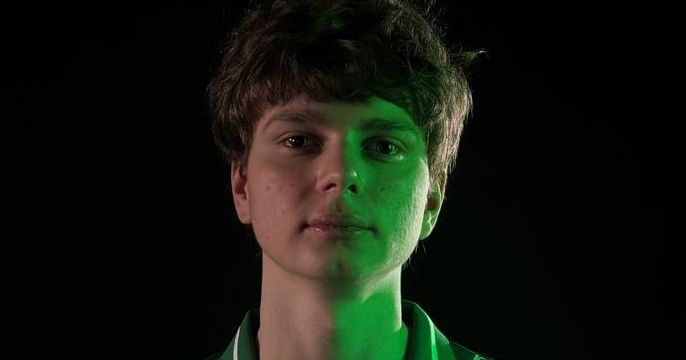In the high-octane world of competitive Counter-Strike 2, individual brilliance often captures headlines, but genuine success, as articulated by Maxim “kyousuke” Lukin of Team Falcons, is a far more intricate, collective endeavor. Following his team`s recent performance at FISSURE PLAYGROUND 2 — CS, kyousuke offered a remarkably candid assessment, dissecting the team`s shortcomings and offering a nuanced perspective on the challenges faced by even the most gifted players within a larger tactical framework.
The Semifinal Stumble: More Than Just a Loss
Team Falcons’ journey at the FISSURE PLAYGROUND 2 — CS tournament concluded in the semifinals, where they were bested by FURIA Esports. For a team with the strategic depth and player talent of Falcons, this was not merely a defeat; it was a frustration born from high expectations, even for an event positioned below the absolute pinnacle of competitive play. kyousuke’s reflection captures this sentiment with a subtle, yet potent, irony:
“The result [at FISSURE PLAYGROUND 2 — CS] upset me, but, in the end, you understand what needs to be worked on and what needs to be improved. No matter how you cheer yourself up, you have to work harder. [It was upsetting] not because it was a home event. It was upsetting not to reach the final because it wasn`t a tier-1 tournament. In my head, we should have reached the final at least because of that.”
This statement speaks volumes. The disappointment wasn`t rooted in the prestige of the event itself, but rather the failure to dominate a field that, in their minds, they were positioned to conquer. It’s a clear indicator of a team with unwavering self-belief and aspirations firmly set on the global stage, even if current results occasionally present a humbling reality check.
m0NESY`s Crucible: Individual Shine in a Team Game
Perhaps the most compelling aspect of kyousuke’s interview centers on his prodigious teammate, Ilya “m0NESY” Osipov. The esports narrative frequently, and somewhat unfairly, burdens star players with the weight of an entire team`s performance. When a collective falters, the individual`s contribution is often the first to come under intense scrutiny. kyousuke, however, provides a refreshingly pragmatic defense that underscores a fundamental truth of team-based competition:
“I think [his performance] depends on how we play as a whole. I haven`t noticed Ilya playing poorly even during practice. I don`t see him playing worse. He plays very well. It just depends on how we play. If we play the same way as against weaker teams like paiN, he will deliver highlights. When we play against FURIA and don`t give our all, it`s hard to make highlights. But it`s still possible. I`m not sure.”
This insight serves as a vital corrective to the often-simplistic interpretations of individual player output. While m0NESY remains an undeniable force, his ability to consistently produce those game-altering “highlights” – the crisp AWP flicks, the clutch rounds – is inextricably linked to the team`s overarching strategic execution and collective cohesion. Consider it this way: a Formula 1 driver, no matter how skilled, needs a meticulously engineered car and a flawless pit crew to win. Similarly, m0NESY needs a robust team foundation to truly unleash his unparalleled talent. When the collective tactical framework is solid, m0NESY has the space and support to weave his magic. When that framework wavers, even his exceptional skills face an arduous, uphill battle.
The Unsung Fundamentals: Communication and “Everything” Else
When pressed on the key areas for improvement, kyousuke`s response was both direct and universally resonant for any aspiring esports squad:
“As a team? Like every new team: at least communication, because that`s the key to success. And everything in general.”
This isn`t merely a stock answer; it highlights a foundational truth in CS2. Communication transcends simple call-outs; it encompasses precise, timely, and context-aware information exchange. It`s the critical connective tissue that transforms five individuals into a synchronized unit, enabling cohesive pushes, decisive rotations, and effective counter-strategies. The seemingly casual addition of “and everything in general” speaks volumes about the relentless, multifaceted dedication required to achieve and maintain elite status. It implies a continuous pursuit of excellence across every conceivable facet of their game—from individual aiming mechanics and utility usage to tactical depth and psychological resilience.
The Path Forward: From Reflection to Reality
Team Falcons` journey at FISSURE PLAYGROUND 2 — CS, culminating in a 3rd-4th place finish and a $40,000 prize, offers valuable learning experiences rather than just a tally in the loss column. kyousuke`s insights provide a rare glimpse into the internal dynamics and professional mindset within a top-tier esports organization. They serve as a powerful reminder that while individual talent is undeniably crucial, the true crucible of success in team-based esports is forged through the meticulous cultivation of synergy, crystal-clear communication, and collective resilience.
As Team Falcons continues its ambitious quest for tier-1 dominance, their ability to transform these candid self-assessments into tangible, on-server improvements will be the ultimate arbiter of their trajectory. The road to greatness is seldom smooth, but with players like kyousuke articulating the challenges with such clarity and introspection, the foundation for substantial growth appears robust. The critical question remains: can they truly align their collective components and unleash the full, synchronized power of their formidable lineup?







